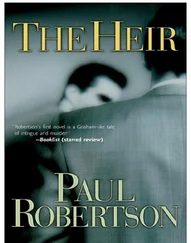Sharp should have been dead and Mitchel free. Mitchel had had his chance to kill him nine years before, but something had taken it from him, either his own hesitation or God’s finger spoiling his aim. And part of the rage that Mitchel felt was that he still did not know which.
Through the wall of the cell the voice read on from the next Psalm: Judge me, o God, and plead my cause against an ungodly nation: O deliver me from the deceitful and unjust man. Mitchel would have said Amen loudly to that but it was the minister James Fraser of Brea reading in his distinctive northern accent, and Fraser, though they had been brought together under the same guard from Edinburgh, had remained cool and disdainful of Mitchel because he thought his grasp of Holy Scripture suspect. Fraser was gentry, the son of a bankrupt Highland laird. A pox on him, Mitchel thought.
He concentrated on his leg instead, seizing the knee with both hands and pressing as hard as he could with his long, bony fingers. Sometimes he could drive the hurt downwards in this manner. He did not understand why this worked, since the damage was concentrated at the knee and below, nor could he recall how he had learnt it as a method of controlling the leg’s contumacy. He had tried everything, though, and by trial and error his hands had refined their haphazard skills. Sometimes he spoke aloud, mockingly, like a preacher excommunicating a malignant royalist: Thou art a girning apostate dog of a leg. He had a fantasy in which he imagined his leg being cast into eternal hellfire come the day of Christ’s judgment, while he ascended, hopping, to Heaven. A less than perfect saint among the saints.
He thought it was not blasphemous to contemplate this scenario in an effort to stem the floods of pain that the leg brought upon him. In fact, the idea of being unique in Heaven appealed to him. They would honour him there for his suffering. Christ Jesus knew him to be true: Jesus knew that he believed his Word, that legless or not he would be remade whole and glorious in the everlasting kingdom.
All Christ’s good bairns go to heaven with a broken brow, and with a crooked leg. He minded that. It was a line from a book he had once possessed, the letters of Samuel Rutherford, a book that had been loathed by the government and burnt by the hangman for its righteousness and truth. Mitchel’s copy was long since lost, but he had loved and treasured it, and still had whole passages by heart. Rutherford was like a second Bible to him. He took dry comfort from that sentence. The crooked leg he had already, and the brow would be broken soon enough.
He clutched his arms around himself and tried to squeeze out the cold. It felt like the sea itself had got into his bones. Outside he could hear the solan geese screaming. The Bass was home to thousands of the birds. They had arrived from wherever they spent the winter – Africa, some said – about the same time as Mitchel. The air was filled with their wheeling and pitching and screaming as they built their nests and pierced the sea for fish. He minded the approach to the Rock by boat, seeing the great streaks of shit down its hulk, its cliffs smoored white and green with the droppings of centuries. The swell of the sea sucked and belched against the foot of it, where steps had been cut leading up to the prison buildings. He had come there from Edinburgh a year after the torture, having lain in chains for most of that time in the city Tolbooth. Twelve horse and thirty foot soldiers had brought him, together with James Fraser, on a bitter day at the end of January. Soldiers had helped him from the boat and oxtered him up the steps and dumped him in this icy chamber, wrapped in a blanket, feverish and shuddering.
In the first week of his being there his fellow-prisoners had tried to mend his leg and restore his physical strength, but the best they could offer was their prayers. They were ragged, slate-faced men, scrunted and thin, and bent, like the handful of wizened cherry trees that grew at the top of the Bass, by the constant buffeting of the wind. Then these men withdrew from him by degrees, because they could not reconcile themselves to the vehemence of his will. Mitchel knew that they thought him embittered, even deranged. But he saw through their weakness: he had only carried the principles that they all upheld – the right of God’s people to resist unholy rule, the duty of God’s Scotland to defend the Covenant against prelatic blasphemy – to their logical conclusion. What they shied away from was their own fear: they were afraid to strike the righteous blow, to be the sword of the Lord and of Gideon.
Because of his leg, he had spent nearly all of the two months lying helpless in his cell. There was no possibility of escape from the Bass, which was sheer and devoid of landing-places on three sides and heavily fortified at the one spot on the fourth where a boat, in calm weather and with a favouring tide, could come in; and so the prisoners were allowed, one or two at a time, to walk everywhere upon it. But this was no advantage to him, crippled as he was. In any case, he was subject to special, more restrictive orders.
Some of the others, in fine weather, or even in wet, cold-blasting storms, spent more time out stravaiging among the solans than in the company of each other. Alexander Peden, the prophet of Galloway, had been there nearly four years, and Alexander Forrester and William Bell, arrested for field-preaching in Fife and in the Pentland Hills, almost as long; James Fraser had arrived on the same boat with Mitchel, and shortly after had come another minister from the north, Thomas Hog of Kiltearn, and a man called George Scot, committed for harbouring fugitive ministers; and there was one Robert Dick, a merchant, who had organised and attended the Pentland conventicle at which William Bell had preached. Together or alone, standing among the pecking solans that moved like a crop of bleached barley in the stiff wind, these men could look across the narrow, impossible sea and dream of re-crossing it. The soldiers of the garrison used to joke that the ministers took lessons from the birds in whining and preaching, so that if they ever got back to Scotland they could deave the whole country with their piousness.
The solans’ screaming never ceased. It sometimes sounded to Mitchel, who could only get to his door and back again, as though the cell must be the only place in the world not filled with birds. A madman would think the constant racket was inside his head. Several times a day Mitchel made a conscious effort to separate the white bird noise from his thoughts; to reclaim his mind from it.
For in his dreams, behind the skull-capped bishop and the hooded torturer, there lurked a third figure, an old man, also a prisoner. Mitchel laboured at his prayers and his Bible because when his mind grew slack this old man approached. He had long white hair damp with seaspray and the skin of his face looked like it had been eaten away by years of salt. More years than Mitchel could bear to think of. He feared the old man; the doubt and self-loathing in his milky eyes. He knew who it was, and it was not himself; but he feared becoming him.
Sometimes in rough weather supplies of food could not be got across from North Berwick for a week or more. In February the prisoners – and the soldiers who guarded them – had been reduced to mixing snow with oatmeal, and chewing on dried fish. The soldiers would sometimes catch fish from the sea, nail them to wooden boards and then float the boards on ropes under the cliffs. A diving solan, spotting the herring, would impale the wood with its beak and be hauled in to be roasted, but these adult birds, some of them twenty years old or more, were tough and oily meat. It was better to eat the fish.
In late summer, men would come to catch the solan chicks, when they were fat and tender but not yet able to fly. Hundreds were taken every year, and sent to London as a delicacy, and yet the colony showed no signs of decreasing in numbers. When the catchers were at work with their nets on the upper part of the Rock, or descending on ropes to knock the flightless chicks on the heads and fling them into the sea, where other men waited to pick them up from a boat, it was like watching Satan’s helpers harvesting souls.
Читать дальше












